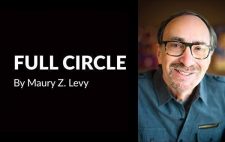Photos by Dana Dewedoff-Carney
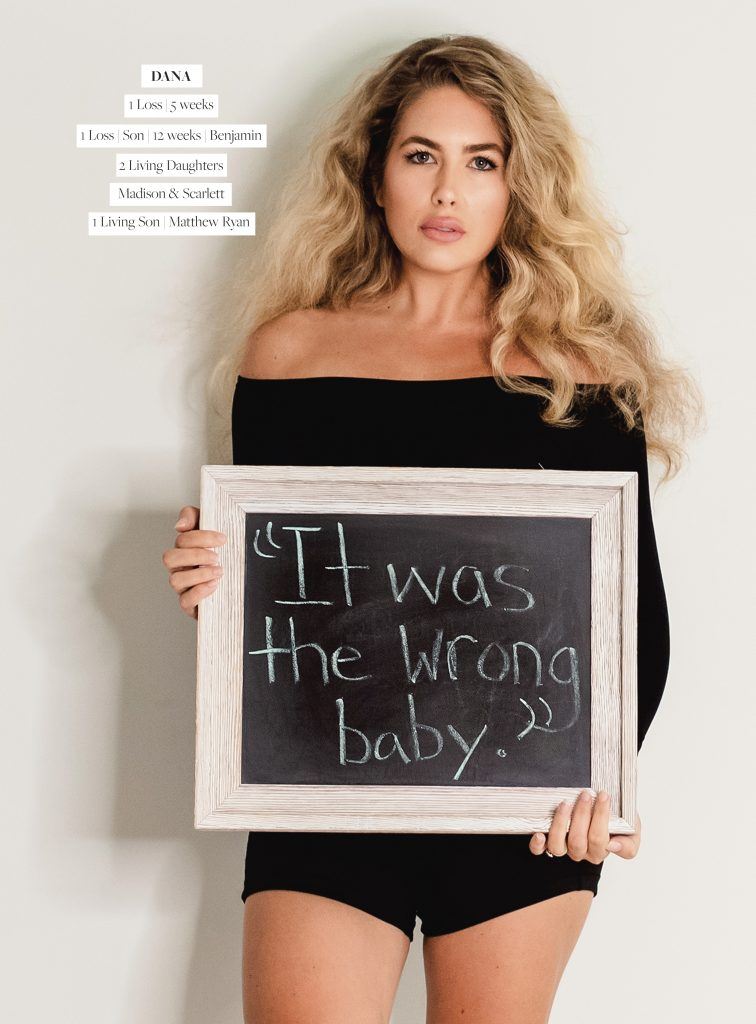 Facing an unbearable loss, one photographer picked up her camera to show the world the shared sadness that parents face after miscarriage. Her photos went viral. Her pain remained. Her hope is these photographed words spark a conversation that many people would rather not have.
Facing an unbearable loss, one photographer picked up her camera to show the world the shared sadness that parents face after miscarriage. Her photos went viral. Her pain remained. Her hope is these photographed words spark a conversation that many people would rather not have.
Let’s make one thing perfectly clear: Dana Dewedoff-Carney has five children.
Three of them – ages 9, 7 and 5 – live with Dewedoff-Carney and her husband in Cinnaminson. The other two are her angels.
In late spring of 2017, Dewedoff-Carney miscarried five weeks into a pregnancy, and this past June she miscarried again, at around 12 weeks.
“I didn’t tell anyone about the first miscarriage,” she says. “I no sooner found out I was pregnant, then a week later the pregnancy ended. I didn’t know how to talk about it, and you don’t realize how badly that can affect you. Silence is dangerous.”
In June, Dewedoff-Carney and her husband went to their 14-week ultrasound and were told that their son, whom they’d named Benjamin, had passed away around 12 weeks.
“We’d announced our pregnancy, and then two weeks later this happened,” she says.
“The doctor was someone I don’t normally see, and she said to me, ‘Oh, it was the wrong baby, and your body is doing its job to get rid of it.’ Well, I say ‘it’ was our son; our hopes, our dreams, our future, and his name was Benjamin.”
One in four pregnancies end in miscarriage, so Dewedoff-Carney knew she wasn’t alone. She also already knew how to bring women together for a common goal. In 2016, blindsided by a divorce and struggling through her first year as a single mother, she found herself feeling very alone.
“I had to close my photography business and enter the corporate world,” she says. “I was commuting back and forth to New York all the time. On the outside, I looked perfect: nice new car, new clothes, fresh haircut. But it was all a shell. I was struggling so much. I started to realize that I couldn’t let myself become the things that had happened to me, and I realized other women needed to know that too. I needed to create a safe place for women to find their potential.”
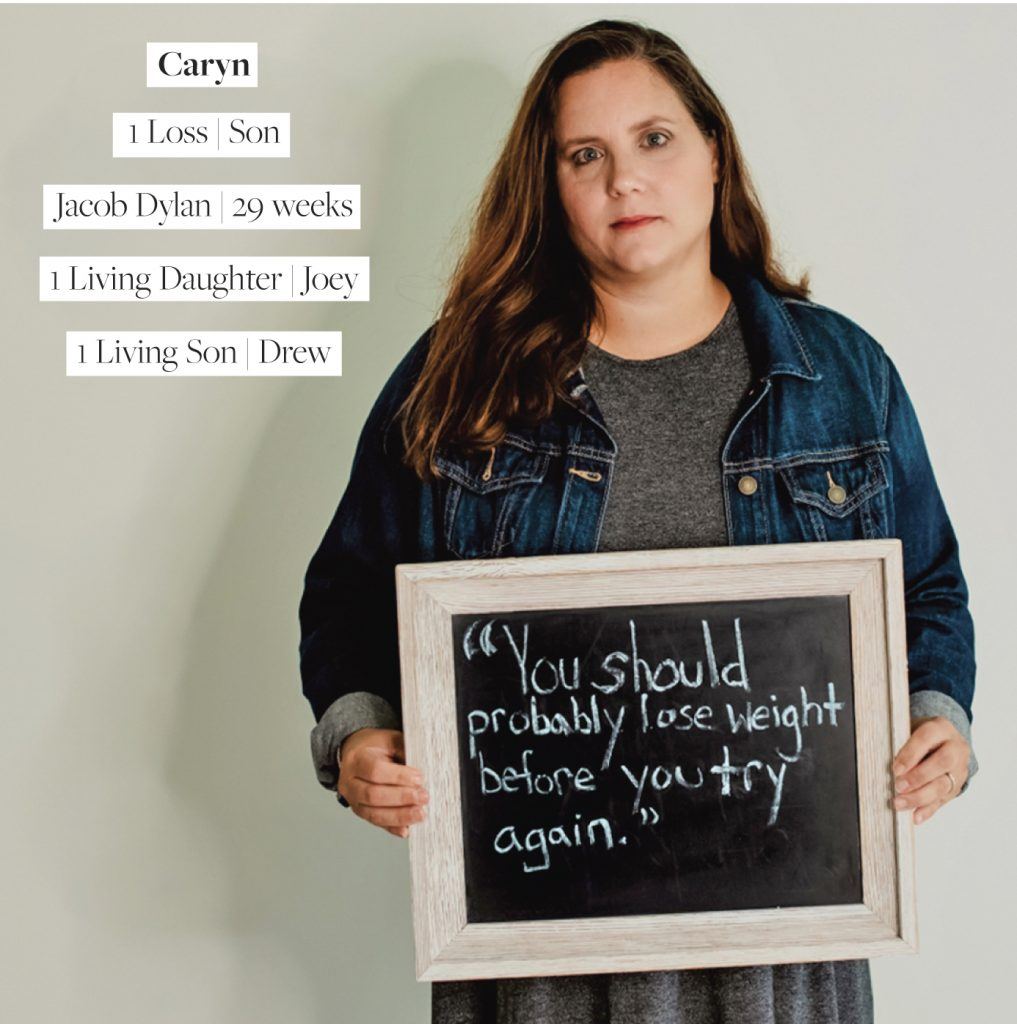 Dewedoff-Carney founded RISE FOR WOMEN, an organization that provided mentorship, support and advocacy for women. The organization’s latest awareness campaign – Project Benjamin, named for the son Dewedoff-Carney lost– has been its biggest yet.
Dewedoff-Carney founded RISE FOR WOMEN, an organization that provided mentorship, support and advocacy for women. The organization’s latest awareness campaign – Project Benjamin, named for the son Dewedoff-Carney lost– has been its biggest yet.
“My skillset is photography, and I decided I was going to be a photographer again. It’s my passion and what I want to be doing, using those skills to raise awareness to the issues women face. After we lost Benjamin, a doctor told me she wishes women would talk to each other more. I was like, ‘I need to do something about this.’”
Dewedoff-Carney put out a call for models who had experienced pregnancy or infant loss. At first, she photographed 11 women. They each held a chalkboard on which they wrote the most hurtful things people said to them after a miscarriage or the loss of an infant.
“You’re so lucky! You have one of each!”
“When are you going to have children?”
“Well, you can adopt.”
“Maybe it was meant to be.”
To someone who’s never lived through this type of loss, Dewedoff-Carney says, these may sound like harmless platitudes. But these women, she explains, aren’t capable of simply moving on: they’ve lost something irreplaceable. That’s why she named the campaign, and the album of photos she posted on Facebook, Project Benjamin: #TheyMatterToo.
“The goal is to change the way we talk about pregnancy and infant loss,” she says. “We tell women not to tell anyone they’re pregnant before the so-called ‘safe zone’ of 12 weeks. This project proves there really is no ‘safe zone.’”
It should come as no surprise that the poignant photos went viral. Suddenly, women from around the world were sending their own photos and commenting with their own stories of loss.
“I’ve had emails and messages, just so, so many,” Dewedoff-Carney says. “In these women’s stories, you feel their pain and their strength. They’re letting their truth out and telling someone, sometimes for the first time, and it’s creating space for positivity and hope.”
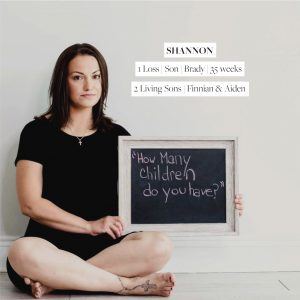 Dewedoff-Carney is continuing to photograph women and add to the album, and she’s begun photographing fathers, too.
Dewedoff-Carney is continuing to photograph women and add to the album, and she’s begun photographing fathers, too.
“They really don’t talk about it,” she says. “Men have to be strong; they’re taught at such a young age not to speak up. But in loss, there’s moments where you can’t find your strength, and that’s ok, it’s all part of grief. But they go unheard.”
Project Benjamin is still growing, and Dewedoff-Carney is clear that the intended audience isn’t necessarily parents who’ve lost pregnancies or infants.
“We need to make a stand and speak up for ourselves,” she says.
“It’s already started because of 11 women who stepped forward and spoke their truth, and now thousands are following suit. This is for these women, but more importantly, it’s for everyone else. We all struggle, and loss is inevitable. It’s the thing that connects us all. It’s almost like people forget that loss is a shared human experience.”
Dewedoff-Carney doesn’t shy away from talking about Benjamin and the baby she lost in 2017, and her family keeps their memories alive. “Going forward, we include Benjamin in everything,” she says. “My kids carved a pumpkin for him this week. He is still a topic of conversation in our family, because living children and lost children matter equally. They are all my children.”
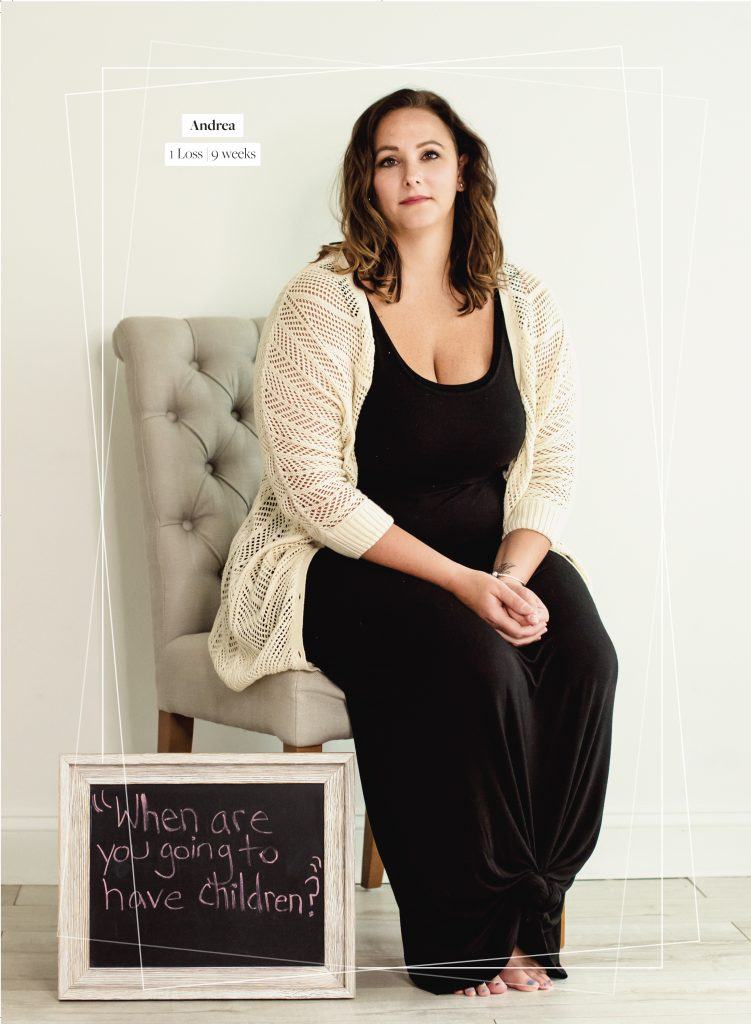 She hopes the impact Project Benjamin: #TheyMatterToo has had on her family and friends will resonate around the world, and help people understand that these children are worth honoring, remembering and talking about.
She hopes the impact Project Benjamin: #TheyMatterToo has had on her family and friends will resonate around the world, and help people understand that these children are worth honoring, remembering and talking about.
“Recently I saw a coworker and he’d heard about Benjamin, and he said, ‘Oh, I’ve been thinking about you, I’m sorry.’ I started to say, ‘Thank you, we don’t know what happened, I was in the second trimester…’ and he interrupted and was like, ‘Shhh, we don’t need to talk about that here,’” Dewedoff-Carney says.
“If that was my 7-year-old, my 5-year-old, would you say the same thing? Someone at some point made things this way, made us too uncomfortable to acknowledge these lives and conditioned us to think it’s inappropriate to talk about the babies we’ve lost. Now we’re stepping up to change it back.”





